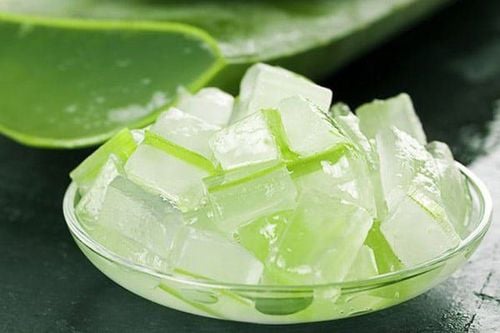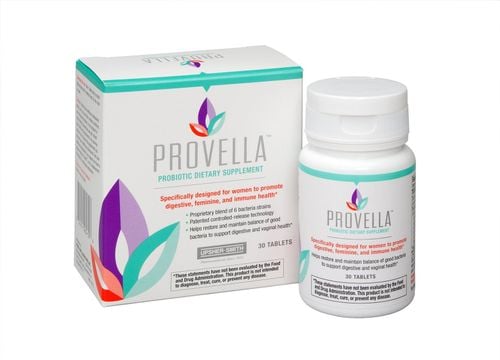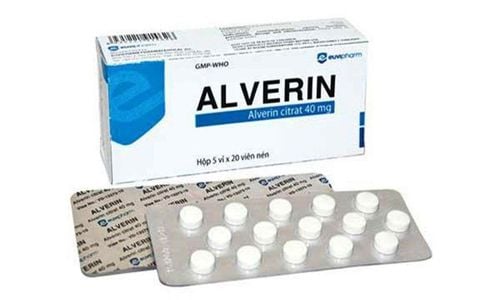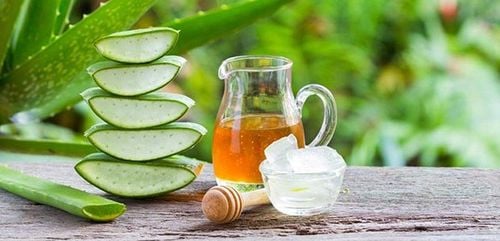This is an automatically translated article.
Posted by Master, Doctor Mai Vien Phuong - Department of Examination & Internal Medicine - Vinmec Central Park International General Hospital
About 3% to about 20% of Americans experience symptoms of irritable bowel syndrome (IBS). This condition affects women more than men. Some people with irritable bowel syndrome have only minor symptoms. For others, however, the symptoms are very severe and disrupt daily life.
1. What is irritable bowel syndrome?
Irritable bowel syndrome is also known as spastic colon, irritable colon, mucous colitis, and spastic colitis. This is a separate condition from inflammatory bowel disease and is not related to other bowel conditions.
Irritable bowel syndrome is a group of intestinal symptoms that often occur together. Symptoms vary in severity and duration from person to person. However, they last at least three months and at least three days per month.
Irritable bowel syndrome can cause intestinal damage in some cases. However, that is not common. IBS does not increase your risk of gastrointestinal cancer, but it can still significantly affect your life.
MORE: Learn Irritable Bowel Syndrome
2. Aloe vera juice
Aloe vera juice is a food product extracted from the leaves of the aloe vera plant. It is also sometimes called aloe vera juice.
Juice may contain gel (also called pulp), latex (layer between gel and skin), and green leaf parts. All are liquefied together in the form of juice. Some juices are made only from the gel, while others filter the leaves and latex out.
You can add aloe vera juice to dishes like smoothies, cocktails and juice mixes. Juice is a widely known health product with many benefits. These include regulating blood sugar, reducing local burns, improving digestion, relieving constipation, and more.
3. Benefits of Aloe Vera Juice for IBS
Historically, preparations of aloe vera have been used to treat digestive ailments. Diarrhea and constipation are common problems that this plant is famous for helping to cure.
Diarrhea and constipation are also two common problems that can be caused by irritable bowel syndrome (IBS). Other symptoms of IBS include cramping, abdominal pain, bloating, and bloating.
Aloe vera also shows the potential to help with these problems. The parts in aloe vera leaves are rich in plant compounds and mucilage. Topically, they help with inflammation and skin burns. By the same logic, they can alleviate gastrointestinal inflammation.
Aloe vera juice can have a soothing effect. Juice with aloe latex - which contains anthraquinones, or natural laxatives - can help with constipation. However, you should keep in mind that there are some safety concerns with aloe vera latex. Taking too many laxatives can make your symptoms worse.
How to drink aloe vera juice to treat irritable bowel syndrome:
You can add aloe vera juice to your diet in a few ways:
Follow a recipe to make a water smoothie your own passion. Buy store-bought aloe vera juice and drink 1–2 tbsp.
Add 1–2 tablespoons daily to your favorite smoothie.
Add 1–2 tablespoons daily to your favorite juice blend.
Add 1–2 tablespoons daily to your favorite beverage.
Cook with it for health and flavor. Aloe vera juice has a similar taste to cucumber. Consider using it in recipes and beverages with flavors reminiscent of watermelon, lemon, or mint.

Nha đam có nhiều lợi ích trong điều trị IBS
4. Studies on the effects of aloe vera juice
Research on the benefits of aloe vera juice for IBS is mixed. Some studies show positive results for people with IBS who have experienced constipation, pain, and bloating. However, no placebo was used to compare these effects. A rat study also showed benefits, but it was not related to human subjects.
A 2006 study found no difference between aloe vera juice and a placebo in improving diarrhea symptoms. Other symptoms of IBS do not change. However, the researchers felt that a potential benefit of aloe vera could not be ruled out, although they found no evidence. They concluded that the study should be replicated with a "less complicated" group of patients.
More research is needed to know if aloe vera juice really relieves IBS. Studies disproving its effects are old, while new research shows promise, despite its flaws. Research also has to be done more specifically to really know the answer. For example, a separate study of IBS that governs constipation and diarrhea may reveal more information.
Regardless of the research, many people who drink aloe vera juice report feeling better and improving their health. Even if it is a placebo for IBS, aloe vera juice has many other health benefits. IBS users should experience no harm if consumed safely.
5. Considerations for Aloe Vera Juice
Not all aloe vera juice is the same. Carefully read labels, bottles, processing techniques, and ingredients before purchasing. Research the companies that sell these supplements and herbs. This product is not regulated by the FDA.
Some aloe vera juices are made only with the gel, pulp or “thinly sliced leaves”. This juice can be drunk freely and more often without much worry.
On the other hand, some juices are made from whole leaves of aloe vera. This includes the green, gel and latex exteriors all together. These products should be used in smaller amounts. This is because the green parts and latex contain anthraquinones, which are potent plant laxatives.
Taking too many laxatives can be dangerous and actually worsen IBS symptoms. Additionally, anthraquinones can cause cancer if taken regularly, according to the National Toxicology Program. Check the label for parts per million (PPM) of anthraquinones or aloin, compounds found only in aloe vera. It must be below 10 PPM to be considered non-toxic.
Also, check the label for “decolorized” or “non-decolorized” whole leaf extracts. The decolorized extract contains all parts of the leaf, but has been filtered to remove anthraquinones. They should be similar to fillet leaf extracts and completely safe to consume more often.
So far, no people have contracted cancer from drinking aloe vera juice. However, animal studies suggest a possible risk of cancer. Take the right precautions and you should use it safely.
6. If you choose to drink aloe vera juice regularly, be careful
Discontinue use if you experience abdominal cramps, diarrhea or worsening IBS.
If you take medication, talk to your doctor as aloe vera can interfere with absorption.
Discontinue use if you take blood sugar control medicine because aloe vera can lower blood sugar.
Aloe vera juice, in addition to being great for overall health, can reduce IBS symptoms. This is not a cure for IBS and should only be used as a complementary treatment. It might be worth trying carefully as the risk is pretty low, especially if you do it yourself. Talk to your doctor about aloe vera juice and make sure it's right for your health needs.
Also, remember to choose the right juice. Whole leaf juice should only be used infrequently for constipation. The inner gel fillet and decolorized whole leaf extract are acceptable for daily, long-term use.
Besides, you should have regular health check-ups to help detect diseases early, so that you can have a treatment plan for optimal results. Currently, Vinmec International General Hospital has general health checkup packages suitable for each age, gender and individual needs of customers with a reasonable price policy.
The patient's examination results will be returned to the home. After receiving the results of the general health examination, if you detect diseases that require intensive examination and treatment, you can use services from other specialties right at the Hospital with quality treatment and services. outstanding customer service.
Please dial HOTLINE for more information or register for an appointment HERE. Download MyVinmec app to make appointments faster and to manage your bookings easily.
Article references source: Aloe vera. (2016); Asadi-Shahmirzadi A, et al. (2012). Benefit of Aloe vera and Matricaria recutita mixture in rat irritable bowel syndrome;Davis K, et al. (2006). Randomised double-blind placebo-controlled trial of aloe vera for irritable bowel syndrome












